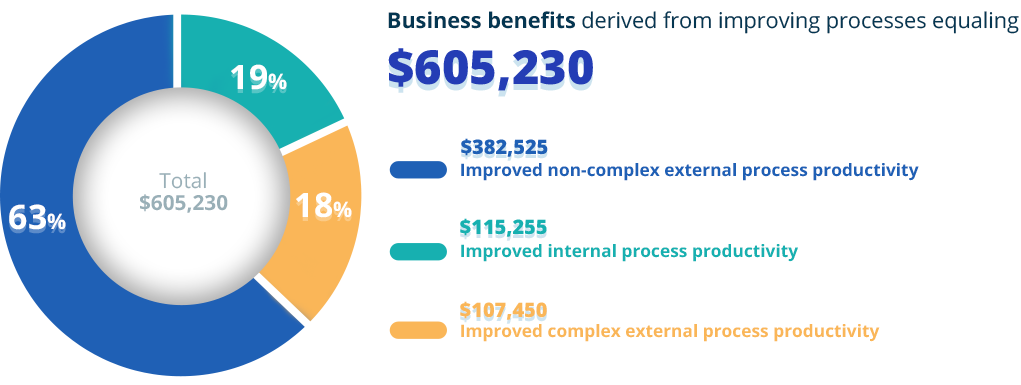4 Tips to Keep in Mind along Your Business Process Automation Journey
Before diving into business process automation, it’s good to bear in mind these best practices we’ve gathered from years of working with hundreds of companies from different industries on their digital transformation journey:
1. Think big but start small: For your first automation project choose a simple process. Tackling a large and complex process on your first attempt can lead to missing deadlines, frustration, and failure. Starting small allows you to deliver a quick win, gain experience working with the software, and learn which stakeholders need to be engaged. It also gives employees a chance to get familiar with how everything works. Moreover, it generates insight as to what to do for the next effort.
2. Be agile, not fragile: Do not attempt to make it right the first time. Process automation is, well, a process. It’s not a project with a scope set in stone. It works best when IT and business work hand in hand in an iterative way. A continuous feedback loop between business needs, company’s expectations, and the application creation. Time and time again, the result of an quick initial “good enough” effort (that then undergoes regular enhancements) is far superior to the slower pursuit of one-time perfection.
3. Don’t digitize a mess: Take a moment before starting an automation effort. Think about what must happen, what the goals are, and how to achieve them. Whether you do it immediately or later, rethinking a part of, if not a whole process is inevitable. We meant what we said about being agile, but that should be balanced against making sure you’re not simply automating a process you don’t like in the first place. It’s okay for the first step of many to also reflect some initial improvement.
4. Choose your automation platform wisely: When choosing the software you’ll be using to automate processes, you’ll have happier results from a comprehensive platform that helps you build tailored-yet-standardized solutions fast and easily adapt them to evolving business needs. (Learn why it’s better to have a single solution for automating all processes in your organization, instead of maintaining multiple platforms for different processes.)


















